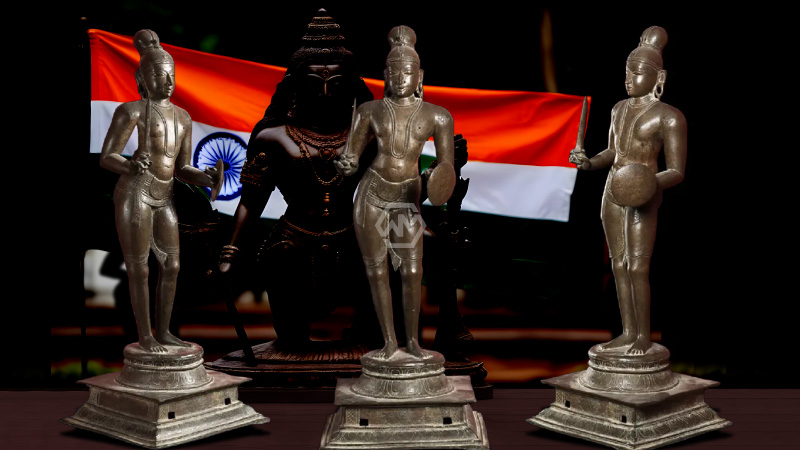- Oxford University returns 500-year-old bronze idol of Tirumankai Alvar to India, acknowledging colonial-era looting.
- Gesture follows global trend of cultural repatriation, prompted by Nigeria’s request for Benin Bronzes.
- Reflects evolving discourse on restitution, highlighting complexities of colonial legacies and cultural heritage.
Oxford University’s decision to return the 16th-century bronze idol of Tirumankai Alvar to India marks a significant step in acknowledging the historical injustices of colonial looting.
The return of the bronze idol reflects a broader dialogue on colonial legacies and cultural heritage, highlighting the need for reconciliation and restitution.
An Apology to the Irish Guards from Kate Middleton
Oxford University’s recent decision to return a 16th-century bronze idol of Tirumankai Alvar to India marks a pivotal moment in the ongoing discourse surrounding colonial-era cultural repatriation. This significant gesture acknowledges the historical injustices stemming from colonial looting, signifying a step towards reconciliation and restitution.
The move follows a global trend of increasing calls for the return of cultural artifacts to their countries of origin, spurred by instances like Nigeria’s successful request for the repatriation of Benin Bronzes. Such actions highlight a growing awareness of the ethical implications of retaining cultural treasures acquired through colonial exploitation.
As institutions like Oxford University grapple with the complexities of their colonial legacies, initiatives like this underscore the importance of addressing historical injustices and fostering greater understanding and respect for diverse cultural heritage. This return of the Tirumankai Alvar idol reflects a broader shift in attitudes towards colonial acquisitions, prompting reevaluation of collections and policies regarding cultural restitution.
Ultimately, such gestures not only honor the cultural identities and histories of affected nations but also contribute to a more equitable and just global cultural landscape, where the legacy of colonialism is acknowledged and efforts towards reconciliation are actively pursued.
In conclusion, Oxford University’s decision to return the bronze idol of Tirumankai Alvar to India signifies a significant step towards acknowledging and rectifying the historical injustices of colonial looting. This gesture not only underscores the importance of cultural restitution but also reflects a broader global shift towards recognizing and respecting the diverse heritage of nations worldwide.
“Returning cultural artifacts to their rightful owners is not just about correcting historical wrongs; it’s about honoring the rich and diverse heritage of nations, fostering understanding, and promoting a more equitable global cultural landscape.”



